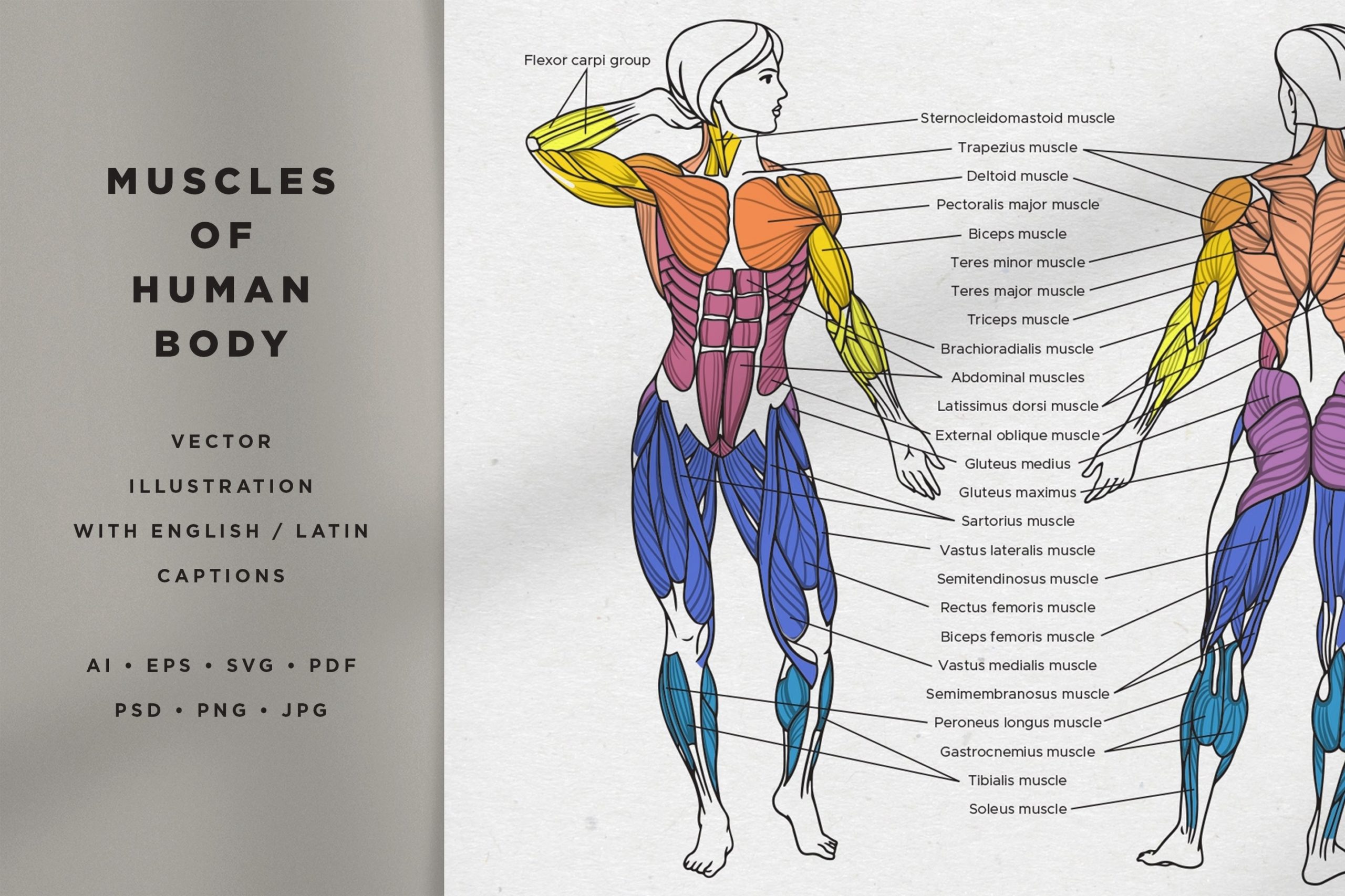Human Body Muscles Examined
The human body is a complex system that comprises more than 600 muscles. These muscles, which are pieces of soft tissue, are involved in everything from maintaining posture to enabling movement and supporting internal organs.
Types of Muscles
Broadly, human muscles are divided into three types:
1. Striated or Skeletal Muscle: These muscles work with the skeletal system and are under voluntary control. They are concerned with movement, posture, and balance. They are the most common type of muscle tissue found in the body and consist of highly elongated, multinucleate, non-branching cells arranged in a parallel manner.
2. Smooth Muscle: These muscles are under involuntary control and are found in the walls of structures such as blood vessels, the urinary bladder, the intestines, and the stomach.
3. Cardiac Muscle: This type of muscle makes up the mass of the heart and is responsible for the rhythmic contractions of this vital pumping organ. It is also under involuntary control.
Functions of Muscles
Muscles perform a wide range of functions in the human body:
– Movement: Muscles enable both voluntary movements, which are actions you control, and involuntary movements, which happen automatically without you thinking about them.
– Support: Muscles provide structural support and help maintain posture. They also support and move your organs.
– Metabolism: Muscles store and release energy that your body uses as part of your metabolism.
– Specialized Functions: Different kinds of muscles help with vision, hearing, breathing, speaking, swallowing, digesting food, moving, sitting still, standing up straight, pumping blood through your heart and blood vessels, and giving birth.
Muscle Anatomy
Your muscles are made of thousands of small fibers woven together. These fibers stretching and pressing together is what moves your organs or body. Your muscles weave together like a quilt that covers your body. They run in all directions and work together to move you.
Muscle Health
Because you have so many muscles, injuries and health conditions that affect them are common. Everyone has a sore muscle every once in a while, but long-term muscle pain, weakness, and other symptoms can be signs of serious issues.
In conclusion, muscles play a crucial role in the human body, enabling a wide range of functions from movement to the functioning of internal organs. Understanding the structure and function of muscles is key to maintaining overall health and well-being.



